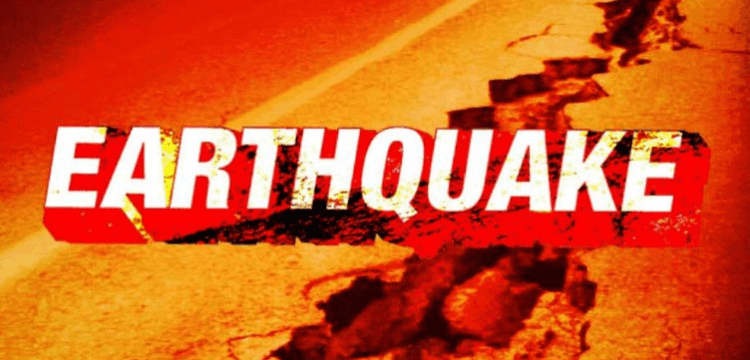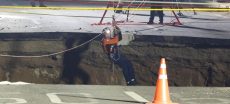[vc_row][vc_column][vc_column_text dp_text_size=”size-4″]Stronger seismic activity is likely to occur in the coming days, potentially peaking 1-3 October and possibly peaking mid to higher 6 magnitude.
Earthquakes are one of the most destructive natural disasters, striking without warning and causing massive damage and loss of life. While we can’t predict when an earthquake will strike, we can prepare and protect ourselves. It is critical to understand what not to do during or after an earthquake in order to avoid exacerbating the situation.
Here are some things you should avoid doing during or after an earthquake:
Before an earthquake, particularly if you live in an earthquake zone:
- Make a plan for yourself, your family, your neighbourhood, your organisation, and so on.
- Examine your surroundings (home, workplace, etc)
- Find a safe location that can provide shelter in the event of an earthquake. The space can either allow you to crawl beneath it and take cover, or it can be the meeting point of two strong walls (column).
- Fix any items that could come undone during the earthquake and cause harm (decoration items, book shelves, wall mirrors, light fixtures, etc).
- Practice “Drop, Cover, and Hold”; if you live in an earthquake-prone area, you must regularly practise this procedure because you will only have a few moments to react during an actual earthquake.
- Keep important documents and other belongings in a designated location where any member of the family can easily retrieve them (passports, ID, property documents, etc).
- Develop an effective communication plan, which is especially important if you are separated during a quake. Remember to put this plan into action, especially with young children.
- When purchasing a new home, determine whether it is earthquake resistant according to local building codes.
If you are inside when an earthquake occurs:
- Drop, Cover, and hold
- Get down on your hands and knees.
- Hands should be used to cover your head and neck.
- Maintain your position until the tremors subside.
- Do not go running outside (falling debris or things from the roof or other floors may fall on you).
- Avoid using elevators.
- If you are not near a desk or table, drop to the floor next to an interior wall and use your arms to protect your head and neck.
- Stay in bed and cover your head with a pillow; get out of bed only when the tremors stop; and wear footwear.
- Avoid using windows, as well as glass walls and panels.
- Avoid outside walls, windows, tall furniture, large appliances, cabinets full of heavy items, hanging objects, and mirrors to a minimum.
Previously: Deadly Earthquake In Morocco Leaves Many Casualties
If you are outside when an earthquake occurs:
- If possible, move to a clear area away from buildings, power lines, trees, and other hazards.
- If you are near a tall building, move as far away from it as possible when the shaking begins.
- If you are driving, safely pull over to the side of the road and stop when you are able.
- Stay away from overpasses, bridges, power lines, signs, trees, and other objects that could collapse or fall on the vehicle.
- Remain in the vehicle until the shaking stops. Stay inside if a power line falls on your vehicle until a trained person removes the hazard.
When the shaking stops after the earthquake:
- Look around for a safe exit from the property.
- If you’re already outside, don’t rush inside to help others.
- If you move while trapped, you may dislodge wreckage and further entrap yourself, or you may kick up dust, making it difficult to breathe.
- If you have a cell phone and its signals are available, try calling for assistance. If the call is not going through, send a text message (not whatsapp, bbm, etc.). When the network is overloaded, a simple text message has a better chance of getting through.
- Be prepared to take cover again and possibly spend the night out in the open if there are aftershocks.
Examine for damage and potentially hazardous conditions:
- Small fires in your home or neighbourhood should be extinguished as soon as possible. Ask for help.
- Damaged wiring — If your home has been damaged, turn off the power at the main breaker switch. Turn off the power until the damage is repaired.
- Items that fall — When you open closet and cabinet doors, heavy items may fall off shelves.
- Gas leaks — Only turn off the gas if a broken pipe or leak is suspected. Wait for the gas company before turning the gas back on.
- Walls that have been damaged may be weakened and may collapse during aftershocks.
If your home has been damaged:
- Do not return to your home until you are sure it’s safe.
- Before using open flames or operating electrical equipment, make sure there are no gas leaks.
- Look for broken water lines and faulty electrical wiring. Water contact with faulty wiring can cause a shock.
- Unplug any broken or toppled light fixtures or appliances, as they may start a fire.
[/vc_column_text][/vc_column][/vc_row]











